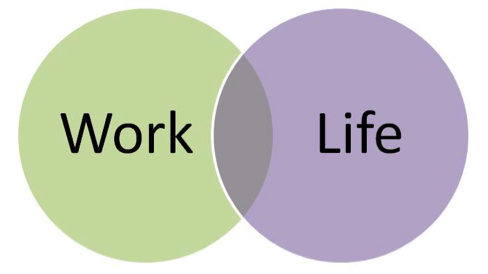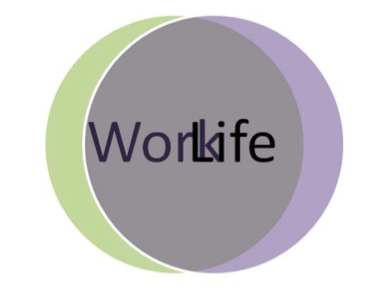Work-Life Balance: Making it Real
Work-Life Balance: Making it Real
When career counseling clients identify their work values, there is one value that invariably finds itself in everyone’s top 5 – Work-Life Balance. Makes sense, though lately I’ve begun to wonder if there is more to this “balance” than what meets the eye. Have you pondered what exactly does work-life balance mean and how is it even attainable?
To further unpack this term, one perspective is Wikipedia, which defines Work-Life Balance as, “a concept including proper prioritizing between ‘work’ (career and ambition) and ‘lifestyle’ (health, pleasure, leisure, family and spiritual development/meditation).” It further says this concept was only first used in the US in 1986!
So, in the last few decades we have become increasingly aware that “proper prioritizing” can help us prevent an unhealthy, im-balance, where work takes over our lives. This may be evidenced both in time spent—more than 40 hours a week at the jobsite plus commuting, then added work “at home” such as checking work email and voicemail–and in the lingering symptoms of stress. The hallmark of such burnout that I hear as a counselor is the dread and depression that clients begin feeling on Sunday in anticipation of returning to work on Monday.
Sometimes images help:
The first Venn diagram shows there is some overlap, a healthy balance perhaps where work does not reach too far in and overtake one’s life and enjoyment of it. Likewise, the overlap suggests a healthy integration between you, your identity as a person, and your work life.


In contrast, the second image demonstrates how it appears when there’s too much overlap—our “life” becomes blurred by and seemingly taken over by our work demands. Quite simply, the more people work, the less time they have to spend on other activities that constitute overall well-being, such as personal care, leisure or time with others.
Symptoms of this imbalance besides Sunday dread include daily anxiety, fatigue, overwhelming pressure, depression, and stress-related physical symptoms—all interfering with the enjoyment of life. Near the apex of being stressed-out is when struggling employees may reach out to career counselors in desperation—Help, my work is not only not enjoyable any more, it is taking over my life! I need help getting out and finding something better ASAP!
As such, Work-Life Balance, and the tipping point where imbalance takes over, is highly individualized – coworkers in the same role and conditions that have different priorities and lives have different lines of balance. Further differences are evident through diverse upbringings, countries of origin, attitudes, coping strategies, physiological susceptibility to stress, etc. And, for everyone, the American culture of hard work is deeply ingrained (let alone our expectations of material attainment).
FACT: The US continues to be in the top 10 of the list of countries in hours workedand gives on average only half the number of vacation days (10 vs. 20 days a year)and is the only major country without a national paid parental leave policy.
What keeps us off balance? Let’s look at how these family and cultural influences are reflected in individual attitudes that tip the balance toward work. Like you, I know there are many pre-requisites that effectively put off keeping work in balance, and they include such conditions as:
- once I complete this mega project at work
- as soon as I get a promotion and raise I deserve
- when I can pay off my credit card debt or retire my home mortgage
- after I bank the mother lode of investments that I will need for retirement (or children’s college)
- and so on
Perhaps these “priorities” raise a larger question of “Why?” As Anna Coote challenges us in Time on Our Side: Why We All Need a Shorter Working Week, “Why do we work? What do we do with the money we earn? Can we begin to think differently about how much we need—to get out of the fast lane and live life at a more sustainable pace, to do things that are better for the planet, better for ourselves?”
To answer Coote’s leading questions requires that one think and act counter culture, against the prevailing American over-work ethic. Is it any wonder we had to adopt the term Work-Life Balance!
Towards achieving balance, daily. I admit that I seem to be better at recognizing when I am stressed and out of balance than I am at consistently practicing the behaviors to keep in-balance. So the operative question may first be, how do you prevent work from overwhelming you? Then, swinging to the positive experience of balance, how do you engage in work in a way that energizes and feels fulfilling – complements your lifestyle in other ways besides monetary?
Clearly this is not a balance you attain once and for all, but must cultivate the ongoing practice of both self-protective and positive behaviors. Indeed, there is a fair amount of inner change involved. For instance, you must learn to focus on your priorities and execute them, and set boundaries for when you work.
And, balance also necessitates that we consistently build in lifestyle activities that bring pleasure and relaxation—I recharge through hiking and skiing in the mountains, watching and smelling the ocean surf, playing pickup basketball, reading, going to church occasionally, volunteering, and watching comedies. What activities help you recharge your batteries?
Finally, reducing it down to essences, perhaps the term is superfluous: “There is no life-work balance,” says Janis Marturano of the Institute for Mindful Leadership. “We have one life. What’s important is that you be awake for it.” One delightful reminder to stay “awake” is this recently-spotted bumper sticker: “Enjoy Being.”
It comes down to this: at work it’s possible to create your own healthiest Work-Life Balance by making sure you not only have meaningful achievements (you add value) but also experience value as you enjoy the job, enjoy life, every day.